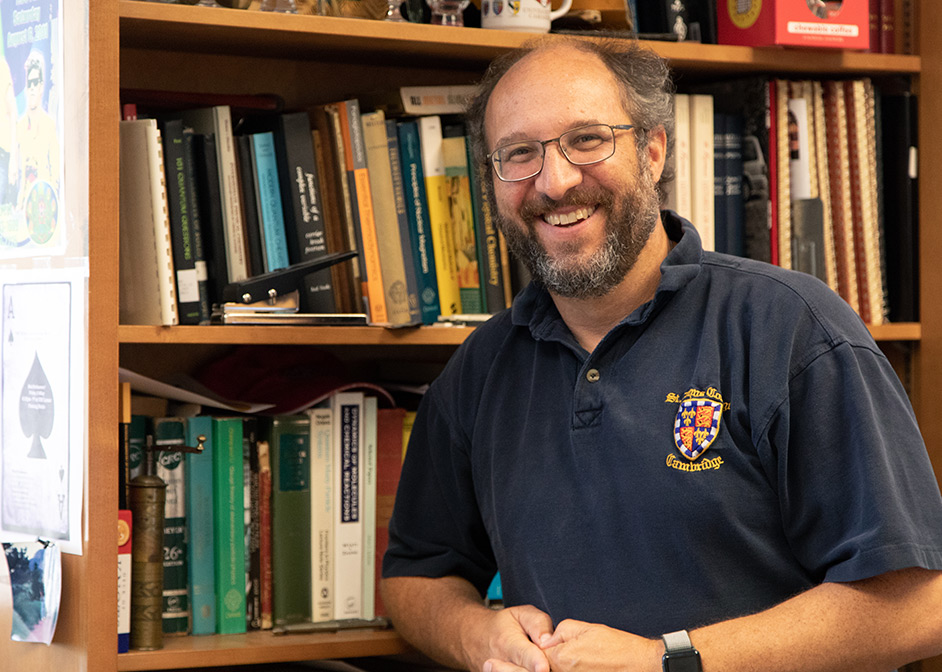Will Spend Seven Months at Durham University as Visiting Professor
Eric Bittner, Moores Professor of Physical Chemistry, has been awarded a Leverhulme Visiting Professorship. This award will support a seven-month visiting professorship at Durham University in the United Kingdom.

During this time, Bittner will collaborate with Durham University faculty member Andy Monkman and give a lecture series.
Award Fosters International Collaboration
A Leverhulme Visiting Professorship is designed to foster international collaborations and is awarded to U.K. institutions that wish to invite a distinguished researcher from abroad for an extended stay. The selection process is rigorous, requiring a nomination, as well as a detailed project proposal. The award is designed to cover travel expenses, research costs and a cost-of-living stipend.
Although Bittner and Monkman have never formally collaborated, their professional relationship goes back years. Their proposed collaboration stemmed from one of Bittner’s previous publications, a project he worked on briefly, then put aside to pursue other interests. In the time being, these results inspired some of Monkman’s recent work.
Now, with the support of a Leverhulme Visiting Professor Award, they’ll have the opportunity to formally collaborate, with Bittner working with Monkman’s group.
“It’s always fun being the token theorist in an experimental group,” Bittner said.
Project with Implications in Organic LEDs
Bittner and Monkman are working on a project with implications in organic LEDs, which are used in digital displays for televisions, computer screens and smartphones.
“Organic LEDs are the opposite of solar cells,” Bittner said. “With solar cells, you put light in and get current out, while with organic LEDs, you put current in and get light out.”
Organic LEDs work by exciting electrons, which then emit light. These excited electrons, called excitons, come in two types, singlet and triplet. While singlet excitons emit light, triplet excitons do not.
Improving Conversion Efficiency
For interconverting excitons, there is a branching ratio, which determines singlet versus triplet. Historically, predictions held that only a certain ratio would be converted to singlets. However, it appears that this ratio can be improved.
“One of the things discovered was that you can beat this ratio, that in fact you can get almost 70 or 80 percent conversion efficiency,” Bittner said.
While at Durham, Bittner and Monkman will continue this research. Meanwhile, there are other perks.
“Durham’s Ogden Center for Theoretical Physics has a lot of great researchers working in quantum optics and quantum information, which is what I am working on now,” Bittner said.
- Rachel Fairbank, College of Natural Sciences and Mathematics